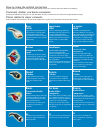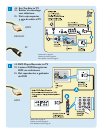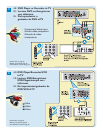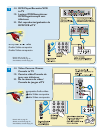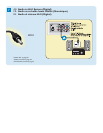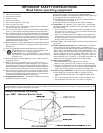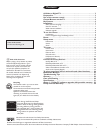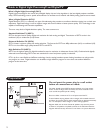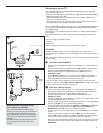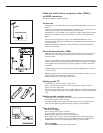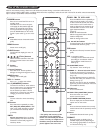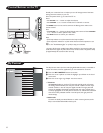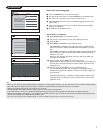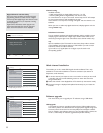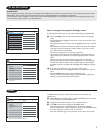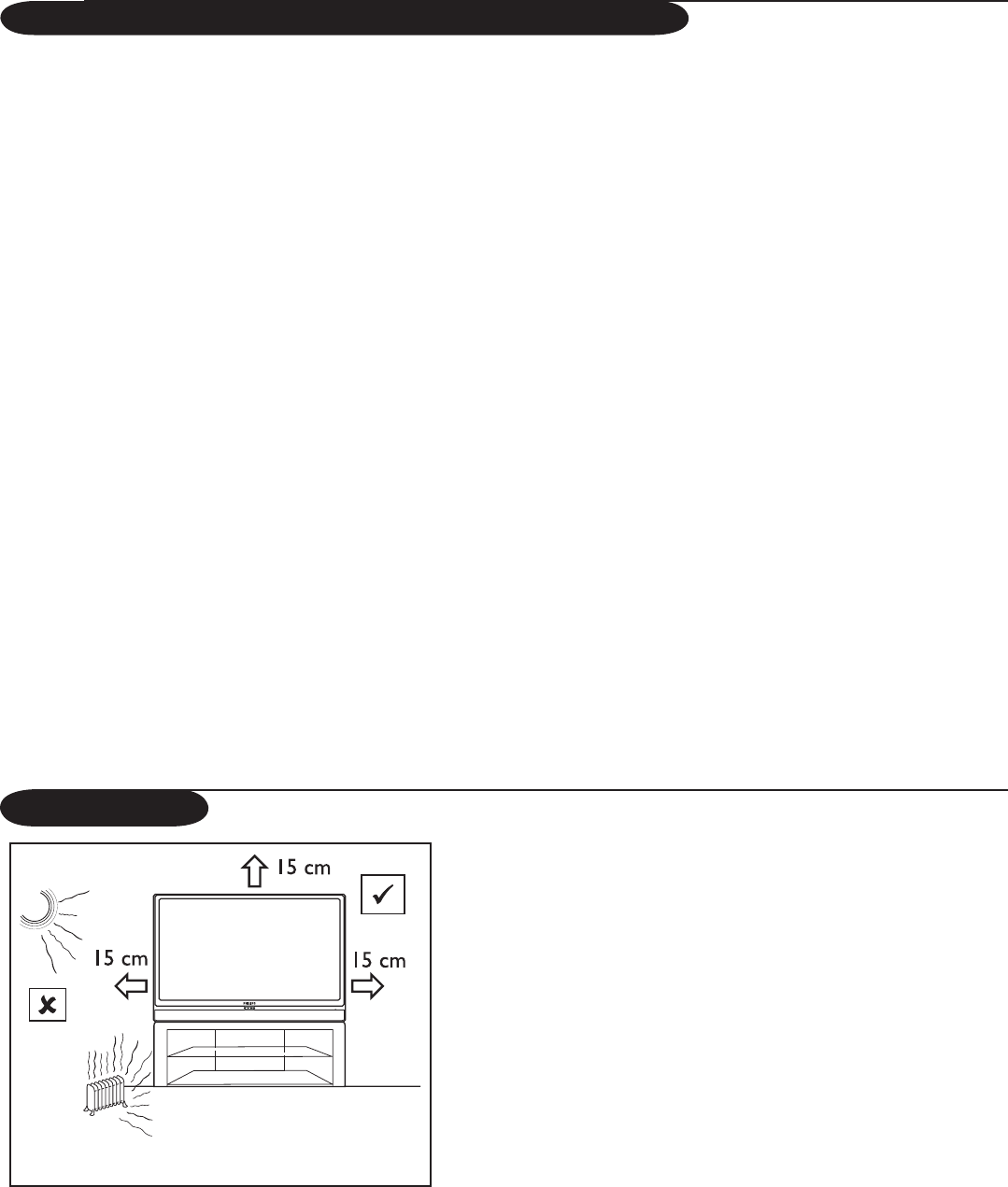
2
Do not insert the power plug in a wall socket
before all connections are made.
The major benefit of this DLP® projection television is its large viewing
screen. To see the large screen at its best, test various locations in the
room to find the optimal spot for viewing.
Be sure to allow a minimum of 15 cm of space around the TV.
To avoid cabinet warping, cabinet colour changes, and increased chance of
set failure, do not place the TV where temperatures can become excessively
hot – for example, in direct sunlight or near a heating appliance.
Magnetic fields, such as those of external speakers, may cause the picture
to distort if the speakers are placed too close to the television. Move the
magnetic field source away from the TV until there is no picture distortion.
Preparation
What is Digital Light Processing® (DLP)?
Digital Light Processing® is the world’s only all-digital display chip and a key ingredient in the best digital projectors available
today. DLP® technology uses an optical semiconductor to recreate source material with fidelity analog systems cannot match.
What is Digital Television (DTV)?
Digital Television (DTV) is a relatively new type of broadcasting that promises to transform television viewing into a whole new
experience. Digital technology is used to capture images and sound to deliver a better picture quality. DTV technology is also
capable of multicasting and interactive capabilities.
There are many levels of digital television quality. The most common are:
Standard Definition TV (SDTV)
SDTV is the basic level of quality display and resolution for both analog and digital. Transmission of SDTV can be in the
traditional (4:3) or widescreen (16:9) format.
Enhanced Definition TV (EDTV)
EDTV is better in picture quality than analog television. The formats for EDTV are 480p widescreen (16:9) or traditional (4:3).
EDTV is in the middle range quality between SDTV and HDTV.
High Definition TV (HDTV)
HDTV has the highest quality for digital broadcast formats. Its resolution is widescreen format (16:9). Combined with digitally
enhanced sound technology, HDTV sets new standards for sound and picture quality in television.
DTV is by far a more flexible and efficient technology than the analog broadcast system. Analog broadcasts can only provide
one program at a time. Digital television can broadcast a high definition program or more than one standard definition
program at the same time.
Guide to Digital Light Processing® and Digital TV



